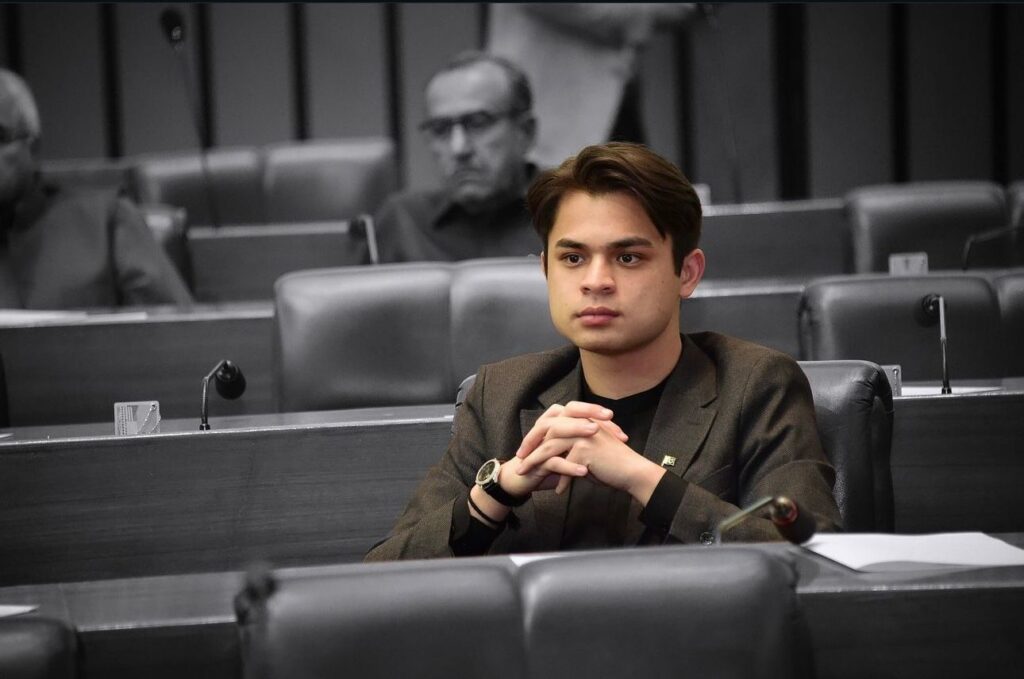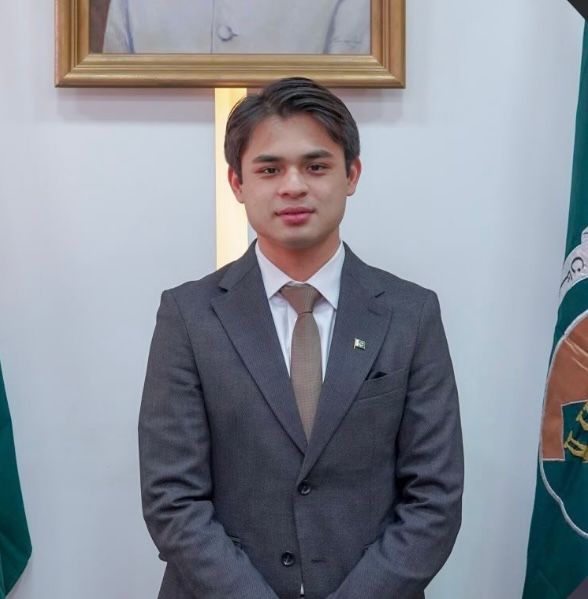
In the vibrant political landscape of Pakistan, where tradition and modernity often clash, Nawabzada Jamal Raisani emerges as a beacon of hope and progress. At just 25 years old, he holds the distinction of being the youngest Member of the National Assembly (MNA), a role steeped in both responsibility and potential.
Born into the illustrious Raisani family, Jamal Raisani’s journey is as much about honoring a legacy as it is about forging a new path. The Raisanis, a name synonymous with leadership and service in Balochistan, have long been at the forefront of regional and national politics. Jamal, however, is not merely resting on the laurels of his ancestry; he is actively shaping his own narrative, driven by a vision that resonates with the youth of Pakistan.
A graduate of prestigious institutions, Raisani’s academic background complements his political ambitions. With degrees in international relations and political science, he possesses a deep understanding of both the domestic and global issues that shape Pakistan’s future. This academic foundation is evident in his approach to governance, where he advocates for policy reforms that are not only innovative but also inclusive, aiming to uplift marginalized communities within Balochistan and beyond.
What sets Nawabzada Jamal Raisani apart from many of his peers is his unwavering commitment to youth empowerment. In a country where the majority of the population is under 30, Raisani recognizes the importance of engaging the youth in the political process. Through various initiatives, he has been instrumental in promoting education, entrepreneurship, and digital literacy, ensuring that the next generation is equipped to lead in an increasingly complex world.

Despite his youth, Raisani has demonstrated a maturity and resolve that belie his years. In the National Assembly, he has been a vocal advocate for the rights of the people of Balochistan, pushing for greater autonomy and development in the region. His speeches are marked by a rare combination of passion and pragmatism, reflecting his deep-rooted commitment to his constituents.
However, Jamal Raisani’s journey has not been without challenges. The volatile political environment of Balochistan, coupled with the immense expectations placed on his shoulders as a Raisani, means that every decision he makes is under intense scrutiny. Yet, he navigates these challenges with grace, often drawing on the wisdom passed down from his father, Nawabzada Siraj Raisani, whose tragic assassination in 2018 was a turning point in Jamal’s life.
The loss of his father, a stalwart in Balochistan’s politics, was a profound personal tragedy for Jamal, but it also strengthened his resolve to continue the work his father had begun. Today, he carries forward this legacy with a sense of duty and honour, striving to create a Pakistan that is more just, equitable, and prosperous for all.
As Pakistan looks towards the future, figures like Nawabzada Jamal Raisani provide a glimpse of what is possible. His blend of youthful energy, intellectual rigour, and deep-seated values make him a leader to watch in the coming years. In a country where political dynasties often dominate, Raisani’s story is a refreshing reminder that legacy is not just about inheritance, but about innovation, integrity, and the courage to chart a new course.
In the years to come, Nawabzada Jamal Raisani’s name may well be synonymous with a new era of Pakistani politics—one where the youth are not just participants, but pioneers.
